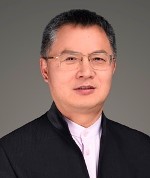FEATURED PAPER
By Xiaojin Wang, PhD
Yunnan University
Kunming, Yunnan Province, China
Translated by Yu Yanjuan
In the era of the Project Economy, changes in technology, demographics and space-time characteristics will drive social transformation, which will have a direct impact on various organizations, and thus promote them to adapt. Those organizations that cannot adapt to social transformation will not survive and thrive. Here are some tips on organizational transformation in the era of the Project Economy.
Differentiate between repetitive work and unique projects
In the Project Economy, work will be further polarized with one pole being repetitive work and the other being unique projects. In order to adapt to this trend, organizations must separate repetitive work from unique projects, because their management methods differ. Repetitive work, which is mainly completed by machines assisted by humans according to established operating procedures, aims to maintain the survival and progressive development of the organization. Unique projects, which are mainly completed by humans with creative efforts aided by machines, aim to achieve organizational innovation and leaping development.
For example, a revolving door manufacturing enterprise, which produces according to customer orders, has been suffering serious seasonal business volume fluctuations so much that it is unable to prepare a feasible annual production plan. I suggest that they should try to separate the standardized spare parts production and carry it out stably as repetitive work; the design, manufacturing and installation tailored to the specific needs of customers should be carried out as unique projects, and the guidance of customer needs should also be strengthened. This suggestion is not only conducive to maintaining the production of standardized spare parts, but also conducive to showing the unique characteristics of the final products. The final product may be 70% standardized parts plus 30% special parts, but the price is 30% of the former plus 70% of the latter. This approach can not only solve the problem of business volume fluctuations, but also strengthen the core competitiveness.
Organizations should adopt artificial intelligence technology to intelligentize more and more repetitive work. In the process of intelligentizing work, organizations must be active enough not to wait for others to design relevant software or make relevant machines and use them passively, though sometimes passive application is necessary. Here’s how to achieve work intelligentizing: to carry out work practice; to carry out systematic review; to improve work knowledge; to structurize the work process; to clarify the work objectives. Many organizations do well in the very first step, but the latter. After all these steps are completed, organizations need to find AI technical experts to help intelligentize work.
Establish a project-team-centered organizational structure
The traditional “pyramid plus functional department” organizational structure results from industrial revolution. Its premise is a stable market and basically unchanged customer demand; its core is to reduce production costs by relying on large-scale repetitive production; its means is that every level of personnel and every functional department carry out responsibilities in strict accordance with the rules and regulations. In the era of the Project Economy, the premise of functional structure no longer exists. Although the functional structure will not disappear completely, in many organizations, it should withdraw from its original dominant position and gradually give way to the project-team-centered structure.
More…
To read entire article, click here
How to cite this paper: Wang, X. (2020). Organizational Transformation in the Era of the Project Economy; PM World Journal, Vol. IX, Issue VII, July. Available online at https://pmworldlibrary.net/wp-content/uploads/2020/06/pmwj95-Jul2020-Wang-organizational-transformation-in-era-of-project-economy.pdf
About the Author

Xiaojin Wang, PhD
Yunnan University
Kunming, Yunnan Province, China
![]()
Xiaojin Wang, Ph.D, PMP, is a professor of project management at Yunnan University in Southwestern China; he is also a project management trainer and consultant. He started his project management career at a large civil project in 1983. After 13 years of practicing project management, he went to RMIT University in Australia to study the Master course of project management in 1996. From 1998 to 2001, he completed a Ph.D., researching the topic “Project Management Culture”. In November 2001, his research paper “Dimensions and Current Status of the Project Management Culture” won the PMI Educational Foundation International Student Paper of the Year Award.
In 2002, he joined Yunnan University to teach project management. It is the year of 2002 when Yunnan University launched the post-graduate (Master’s Degree) program in project management. Yunnan University was founded in 1922. It is one of the earliest comprehensive universities in Southwest China. He is the author of 20 project management books (In Chinese), for example, “Project Management Methodology”, “Dr. Wang’s Guide to PMP® Exam”, and “Creating Original Values through Projects”. He is also the author of many project management papers/articles, for example, “Project Management: From Traditional to Agile Approach”. Five of his academic papers were published in the Project Management Journal and International Journal of Project Management.
For Prof Wang, project management is not merely a career, but a way of life. His bond with project management has lasted so long that it seems to have penetrated every corner of his life. Project management way of thinking enabled him to form the habit of running and helps him deal with almost everything. He started outdoor running at the age of 53 in 2015. By doing projects to develop and maintain his capabilities, he has extended his single running distance from 5 kilometers to 10 kilometers to 20 kilometers and to 30 kilometers. He now performs a 30-kilometer run every week. The running exercise is very good for his health.
Prof Xiaojin Wang can be contacted at xjwang@ynu.edu.cn









